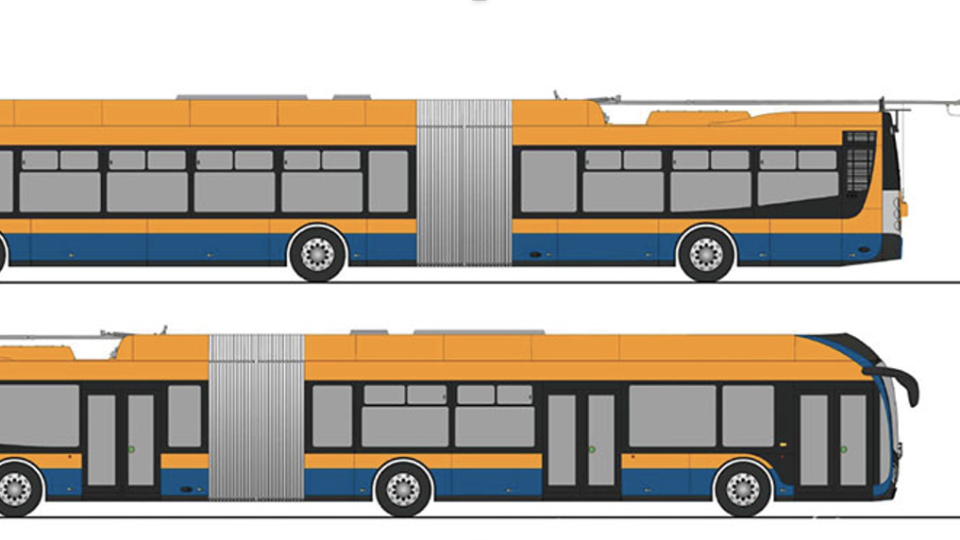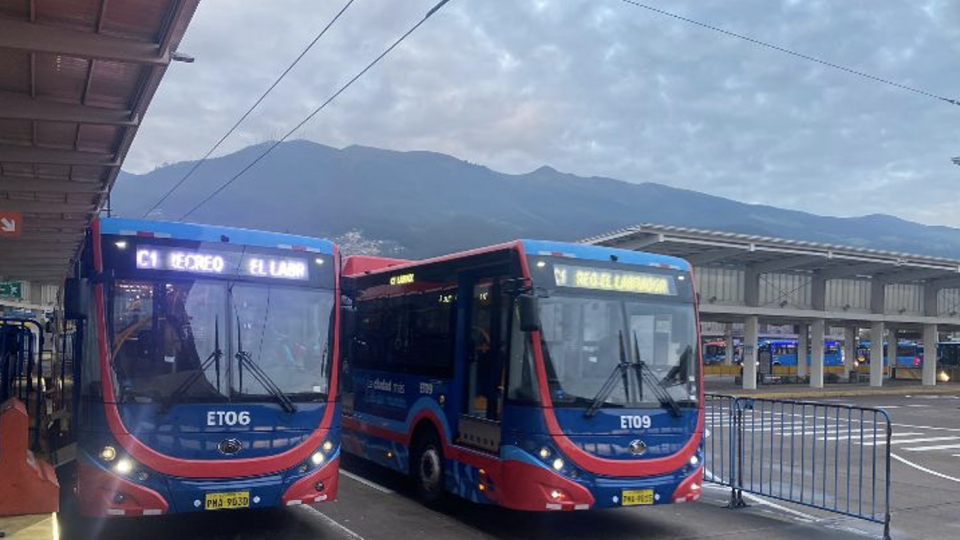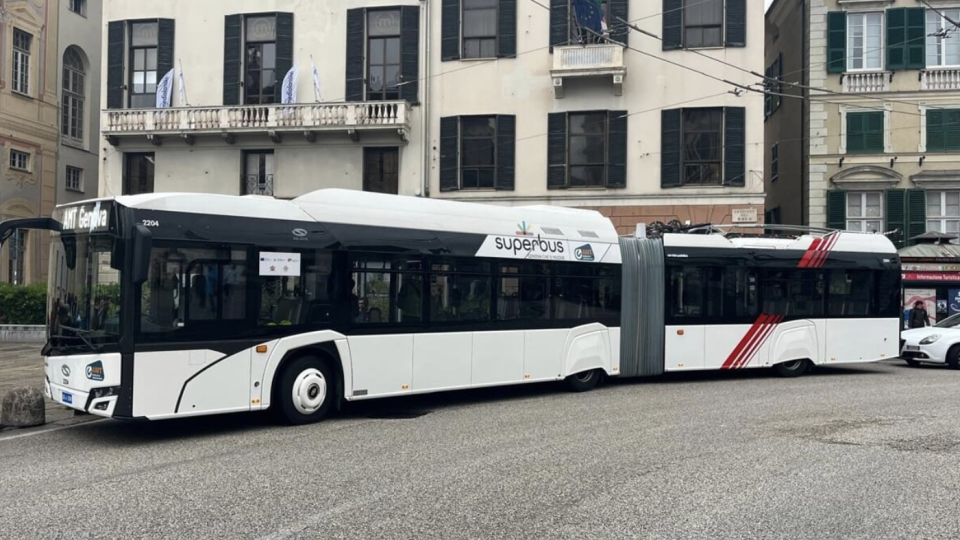Line T2 Bergamo-Villa D’Almè: start of executive project
The countdown begins for the new TEB’s T2 line. In early July the contract was signed with the temporary grouping of companies (RTI) formed by Impresa Milesi geom. Sergio s.r.l., G.C.F. Generale Costruzioni Ferroviarie S.p.A., Skoda Transportation s.a. and Impresa Edile Stradale Artifoni S.p.A., which will lead to the construction of the Valle Brembana Bergamo-Villa […]
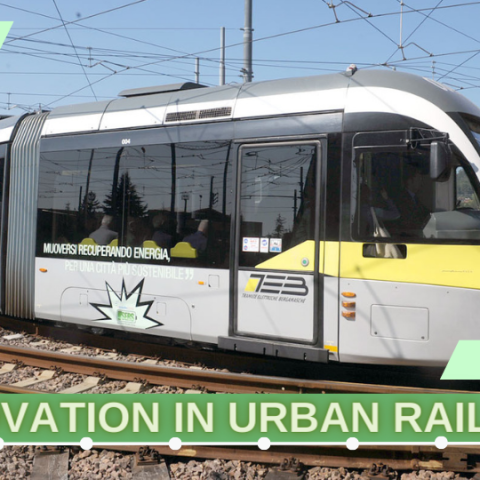
The countdown begins for the new TEB’s T2 line. In early July the contract was signed with the temporary grouping of companies (RTI) formed by Impresa Milesi geom. Sergio s.r.l., G.C.F. Generale Costruzioni Ferroviarie S.p.A., Skoda Transportation s.a. and Impresa Edile Stradale Artifoni S.p.A., which will lead to the construction of the Valle Brembana Bergamo-Villa d’Almè T2 tram line, scheduled to open by September 2026.
The signing of the contract, signed by TEB CEO Gianni Scarfone and Sergio Milesi for the grouping of companies, formally marks the start of the executive design, which will be completed by November 2023, followed by the start of construction work by the end of this year. The grouping of companies will also have to guarantee the coordination of safety during the design phase, the supply of 10 new trams, as provided for in the tender awarded for a final amount of EUR 176,350,782.31.
Procedures are currently underway for the occupation of the private and public areas necessary for the construction of the new line, and the definition of agreements with the owners and managers of the services and facilities (gas pipelines, aqueducts, sewers, electrical and telecommunications lines).
The technical-economic feasibility project of Line T2, developed by TEB in December 2018, in cooperation with the Municipality of Bergamo and the University of Bergamo and accompanied by the agreements signed with the Region, the Province and the Municipalities affected by the route, was accepted and financed in 2019 by the Ministry of Infrastructure and Transport. More specifically, the total investment of 211.5 million euro is financed 151.5 million euro by the Ministry of Infrastructure and Transport, 40 million euro of co-financing by the Lombardy Region, 9.5 million euro by the Municipality and Province of Bergamo, and 4 million euro by the other municipalities affected by the route, the latter being financed 3 million euro by the BIM Consortium.
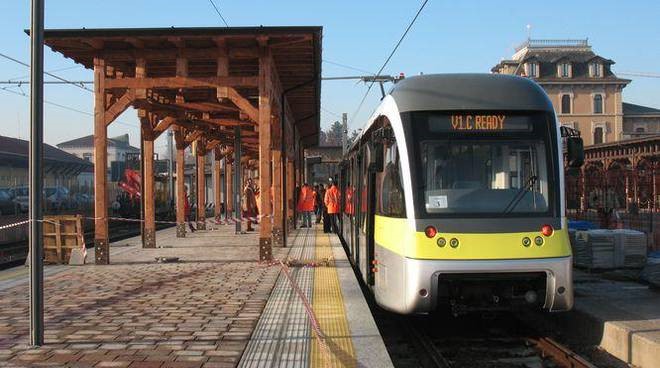
The T2 line
The T2 line from Bergamo to Villa d’Almè runs on the site of the former Valle Brembana railway, closed in 1966, crosses 5 municipalities and involves a population of over 240,000 inhabitants.
The route runs for 11.5 km and in the first urban section shares the terminus with the railway station and the next two stops (Borgo Palazzo and San Fermo) of Line T1. From the next new stop Bronzetti, an interchange between the two tram lines, T2 continues along the route of the old Valle Brembana railway.
A total of 17 stops are planned: 9 in Bergamo, 2 in Ponteranica, 2 in Sorisole, 2 in Almè and finally 2 in Villa d’Almè. There will also be two additional stops, planned in connection with the urban redevelopment work in the former Reggiani area in Bergamo and the Gres area in Sorisole.
For 95% of the route, Line T2 will run along a preferential route and in a protected space with 23 level crossings, including road and pedestrian crossings. The maximum speed is 70 km/h. On the more urbanised section between Ponteranica and Bergamo it is 50 km/h, which drops to 15 km/h near road crossings.
The new tram service will be integrated with public transport services in the urban area (bus lines in the 30 municipalities around the capital) and the suburban area of the Brembana and Imagna Valleys.
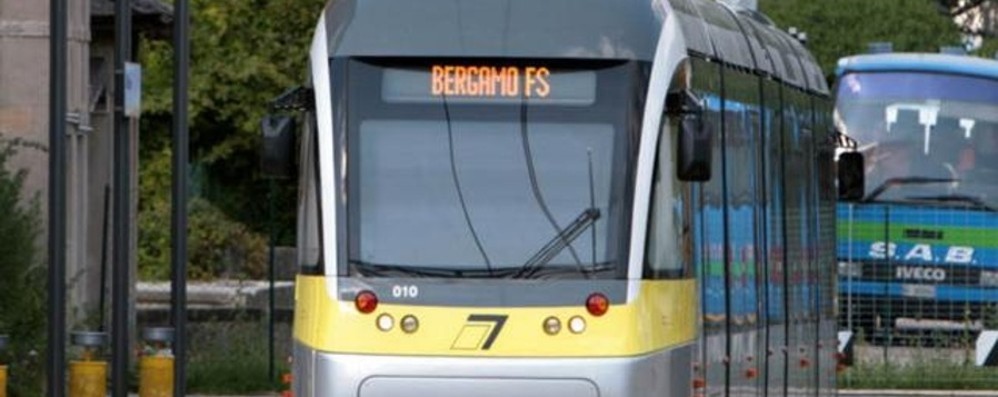
The entire route is double-track with the exclusion of the existing Ramera tunnel at Ponteranica and the historic Rino bridge at Villa d’ Almè.
Along the route in Bergamo, a number of new tunnels (Pontesecco), overpasses (S. Antonio) and subways (Viale Giulio Cesare) will be built to allow trams to continue along the route.
The journey time from Bergamo to Villa d’Almè is 30 minutes; of the 10 new trams being ordered, 8 will be on the line, 1 on operating escort and 1 on maintenance escort. The vehicles will be 32 metres long with a similar maximum capacity of 239 passengers. The vehicles will be interchangeable with the 14 trams already on the T1 line for a total fleet of 24 trams that can run on both lines.
For the T2 line, a new depot is planned near the Petosino stop, for the storage, washing and cleaning of up to 11 cars. The Operational Control Centre in Ranica, already the headquarters, depot and workshop of Line T1, will manage both tram lines, significantly reducing the unit running costs of the existing service as well.
The trams will run according to the winter and summer timetable – Monday to Friday, Saturday and holidays – as for Line T1, and service is scheduled from 6 a.m. to 9.30 p.m. with the possibility of extending the time slot. According to ATB, at rush hour, with the trams 82% occupied, an estimated 15,064 passengers per day, 150 runs and 1,700 km travelled per day, for a total of 500,000 km/year and between 4.1 and 4.5 million passengers per year.
There will be 7 interchange car parks for a total of 515 parking spaces and one cycle/pedestrian path built by TEB and flanking the tramway on the San Fermo-Villa d’Almè section, 2.5 m wide, 9,840 m long and connected to the other cycle paths. Bicycle and moped parking spaces will be provided at each stop.




